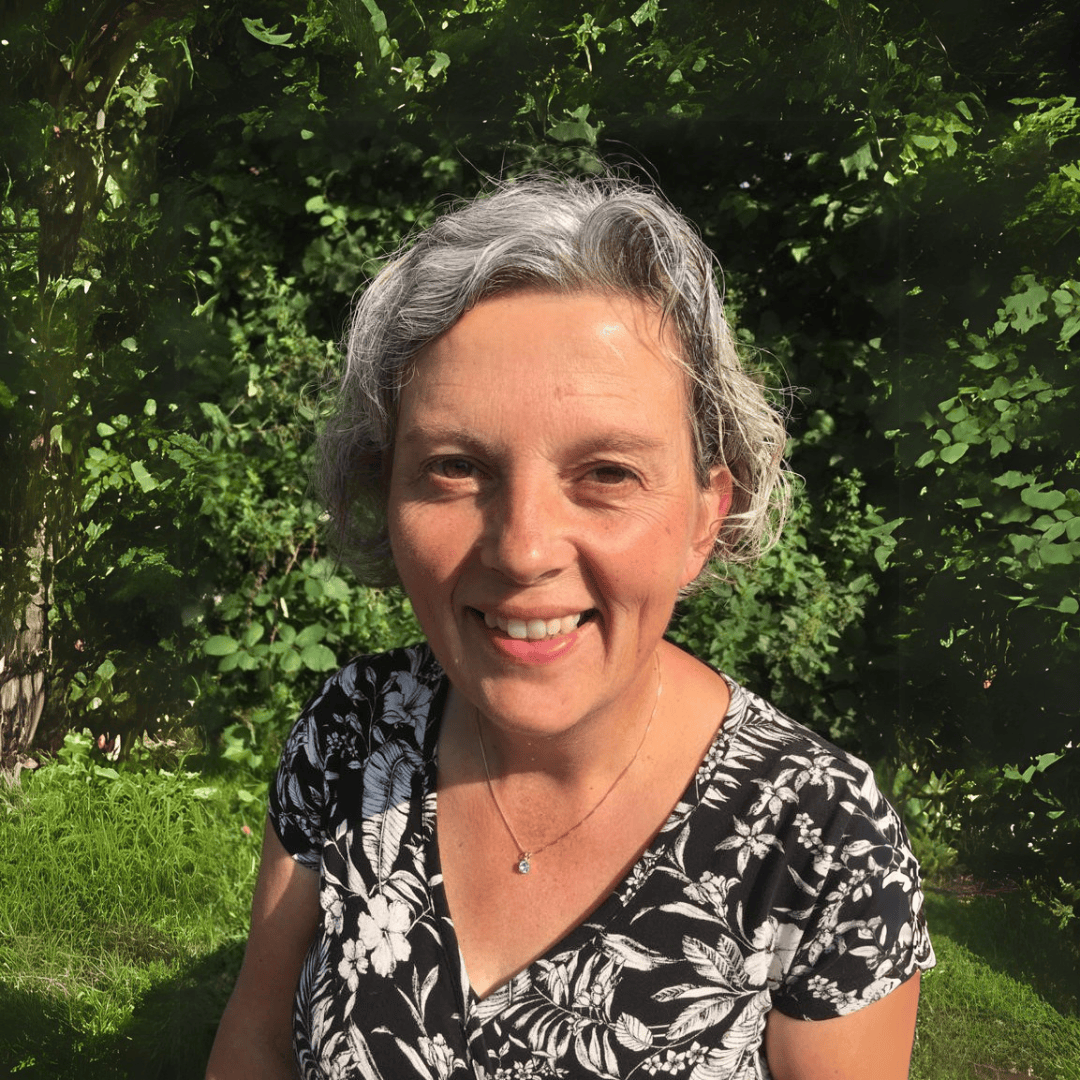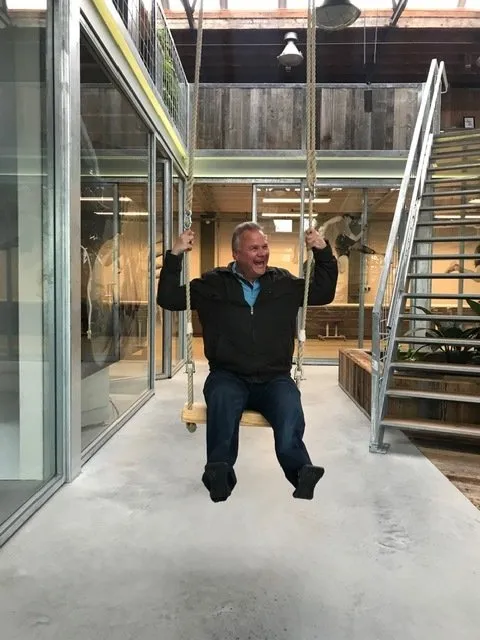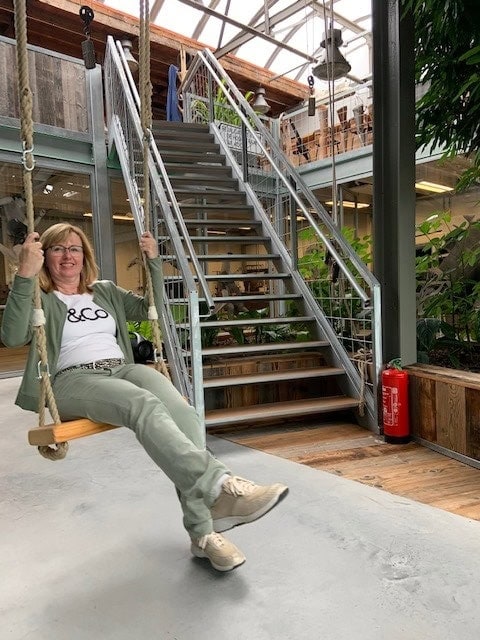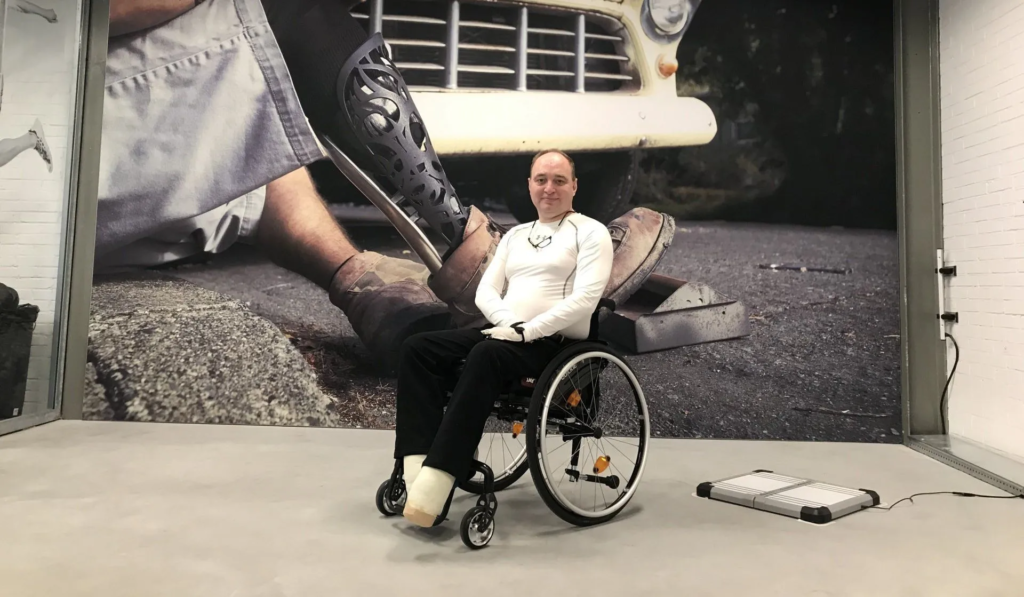Karin’s story
In 2010 I fell in a bad way with my bicycle, my three-year-old daughter was sitting on the back. We slipped on a small piece of ice lying on the road. My knee injury was initially not properly assessed, but on closer inspection it was very severe and I had to undergo operations and rehabilitation programs in various countries with insufficient results. The leg was no longer stable, I had nerve damage and dystrophy developed in my foot. Despite all good efforts, it was not possible to function with the leg again. Finally, after careful consultation, we decided on an upper leg amputation. To me that seemed like an “outcome”, but the reality turned out to be different. After the amputation I got severe nerve pains that did not disappear, despite operations. The pain I feel I have all day long. If I touch my leg or tense muscles, the pain intensifies.

A torment
At first this was great suffering and a torment. Panic also set in. How was I supposed to live with this? I thought that something could be done about my situation, that the amputation would change my life for the better and I had not considered this scenario. At first you keep hoping for a different outcome.
Focusing on what is still possible
There was nothing else to do than look for a counterweight to the pain. And that is a whole process that you go through. Because how do you learn to deal with such a setback? I started to focus on what was still possible, what was still physically possible, what I could still enjoy, in short, what could grow. This gave rise to the strength to keep going. During that period I learned to drive with my left leg. I am very proud and happy about that! In addition, I am looking for suitable work again. My family, my friends and acquaintances, resources and my faith support me in these processes.
Karin focuses on what she can still do, she gets strength from that.
Protec
During my rehabilitation I met someone who also had an upper leg amputation and suffered from neuropathic pain. She put me in touch with the people at Protec to see if I could try a prosthesis. Before my amputation I had the idea that with a prosthesis I would be able to climb mountains again, that there would be as much as possible again, but the nerve pains made my wishes smaller, I became more humble. I just wanted to wear a prosthesis every now and then to stand or walk a short distance. That’s all I needed and I wanted to try it.
Tough and challenging
My first contact with Kas, the motion technologist and instrument maker at Protec, was very pleasant. I was impressed with the location. So beautifully and uniquely decorated. Tough and challenging and it is good to enter. Kas was empathetic, took his time and took my nerve pain very seriously. It felt safe and I felt he was very respectful. He was investigative and thought in terms of possibilities, explained a lot and really took the time for my story.
Relinquish control
Then an appointment followed to fit the prosthesis. That was a particularly emotional moment for me because I literally and figuratively had to put my leg, full of nerve pain, in the hands of someone else. Something had to be done around it and that couldn’t be removed immediately. That surrender released a lot. You feel vulnerable because you have to let go of control. After fitting, I could not test the socket because another operation had to be performed. In principle, the health insurer has approved a test run with an electronic knee. But we haven’t gotten beyond that stage yet. I am not yet able to try the prosthesis.
Expectations
Everything I’ve been through in the past ten years has changed me. I know it’s not as simple as I first thought. I am modest in what I want, it is more a matter of enduring and persevering. Life is not malleable, but you do have a choice in the way you deal with setbacks. I learned that along the way. And this setback has also brought me a lot of positive things and I want to give that attention. I met new people, made friends, enjoyed little things during my rehabilitation journeys in other countries. I can still remember looking at the mountains in the Rocky Mountains and thinking, how nice that I can see this now. At that moment the focus was on the good and beautiful things in life and not on the pain.
Small things have become big
The little things have become special. Big almost. For example, I recently cycled with my hand bike, together with my husband in a beautiful area and I am so happy that I can! I have no influence on what happens to me, but I can continue to direct how I deal with it. I express what lives in me and look at what is there! And that prosthesis? When the time is right I will test it and I know that at Protec there is the space and time to do that carefully.




